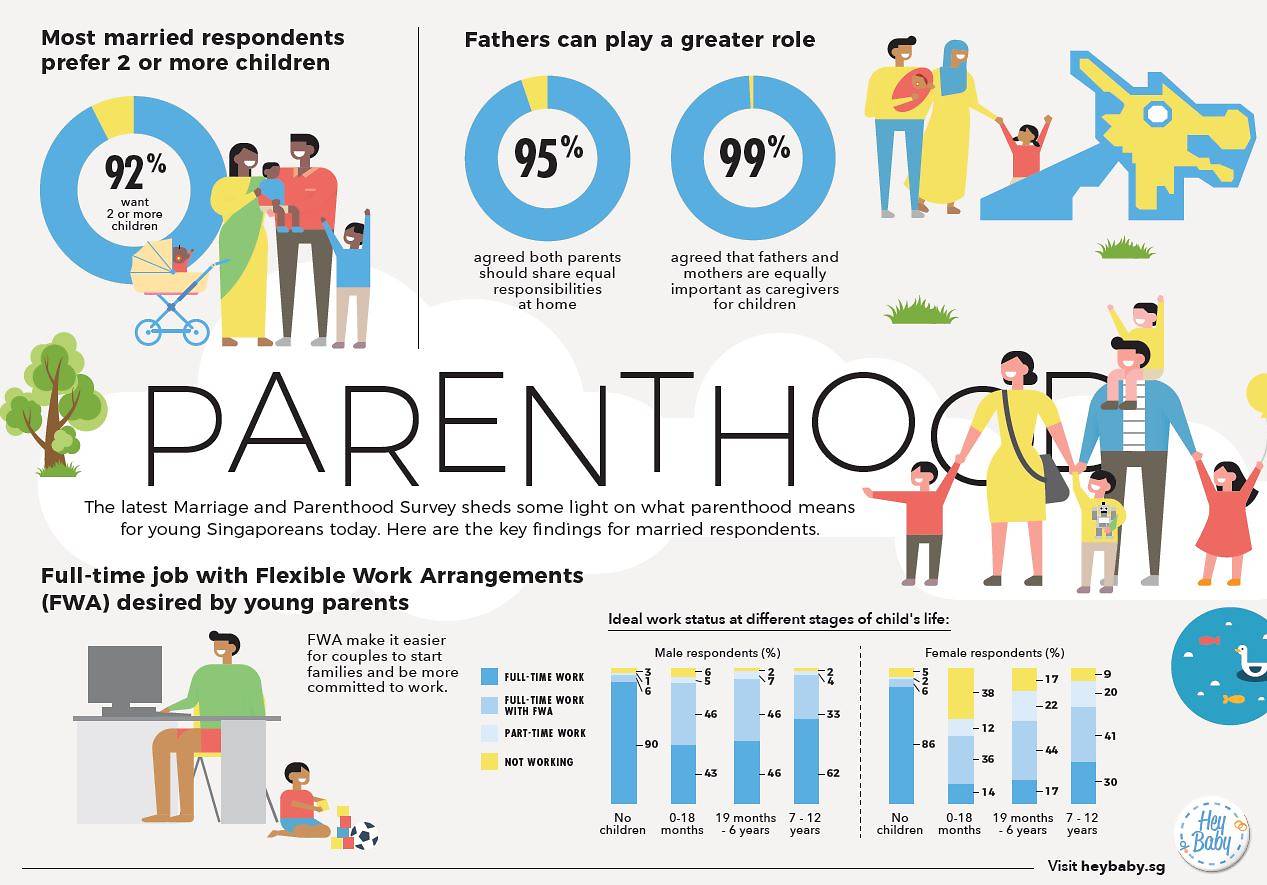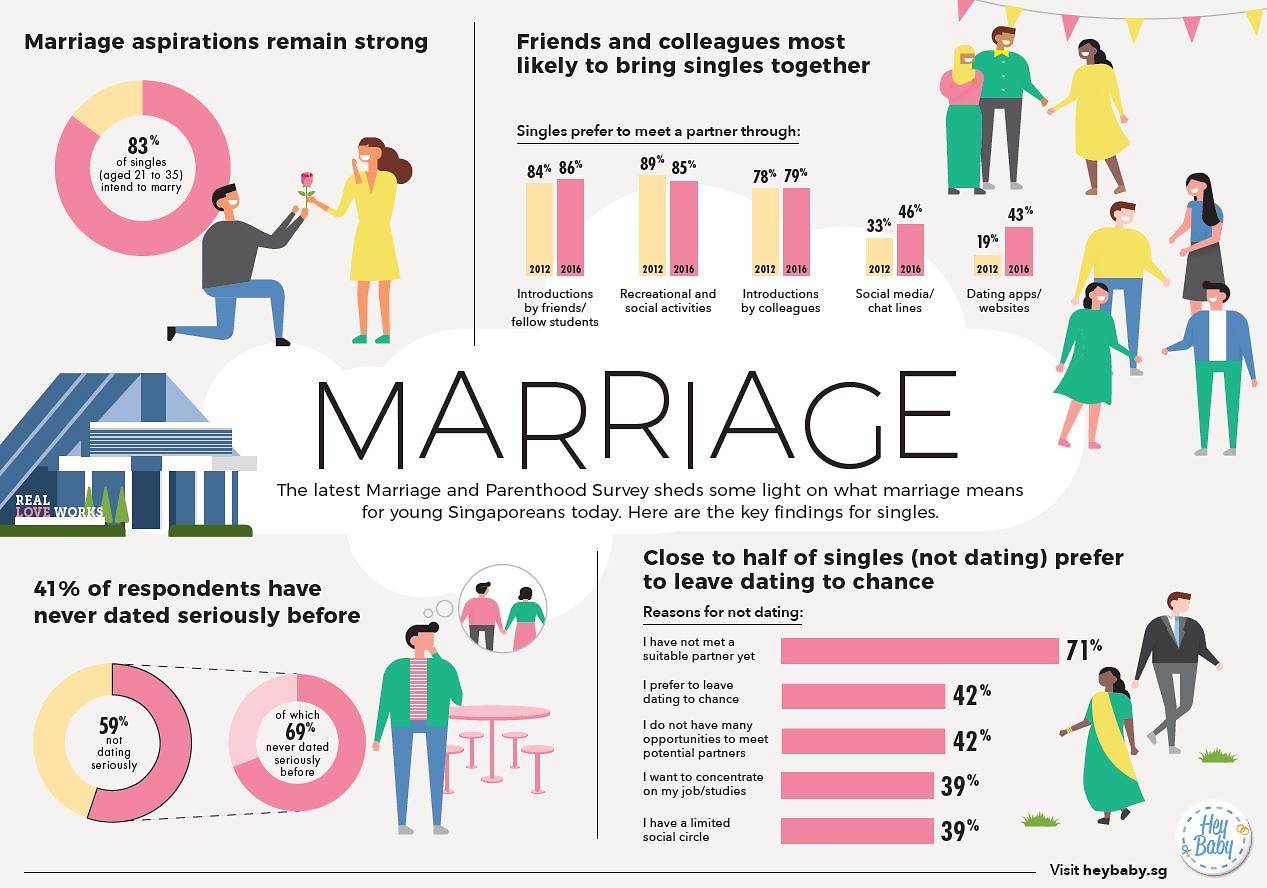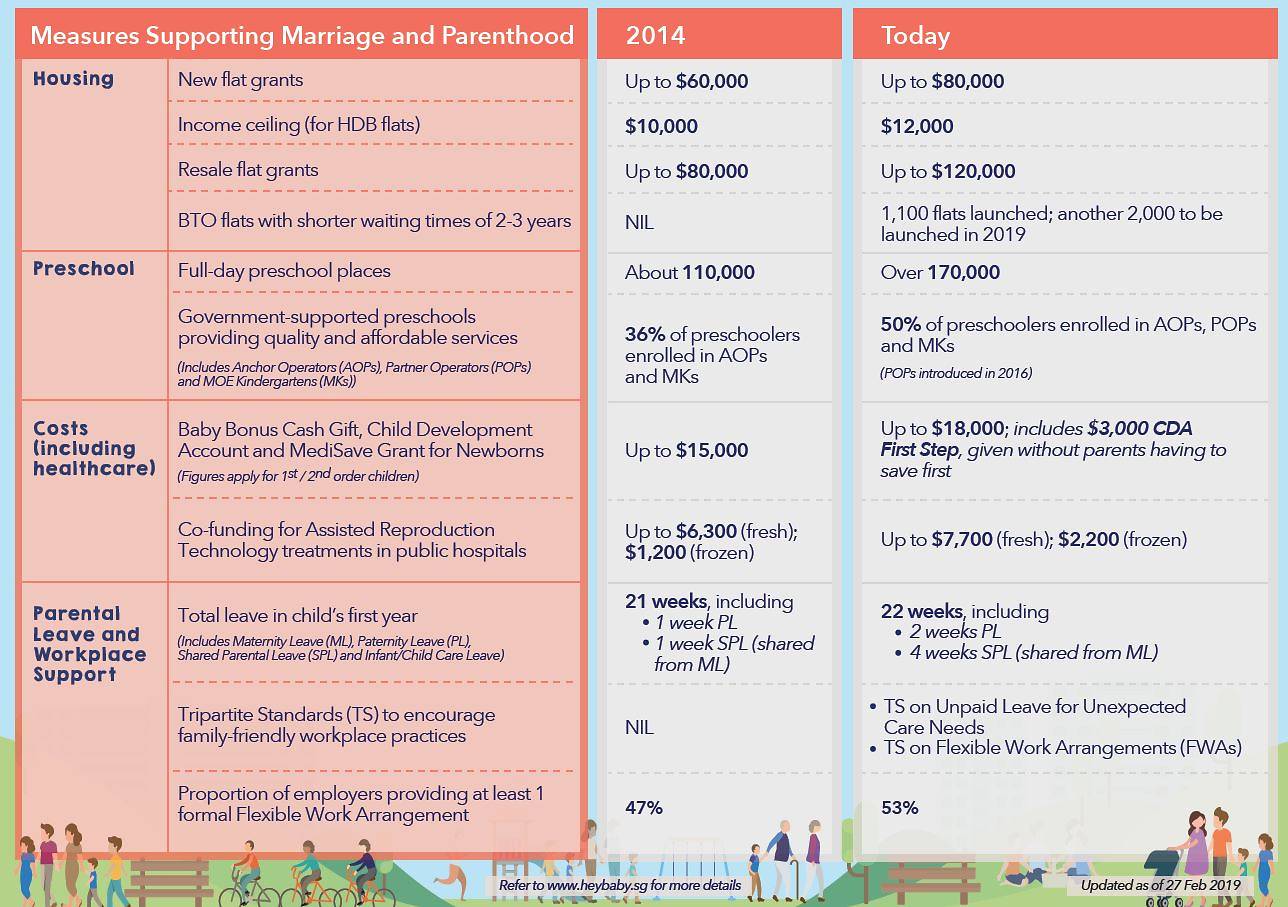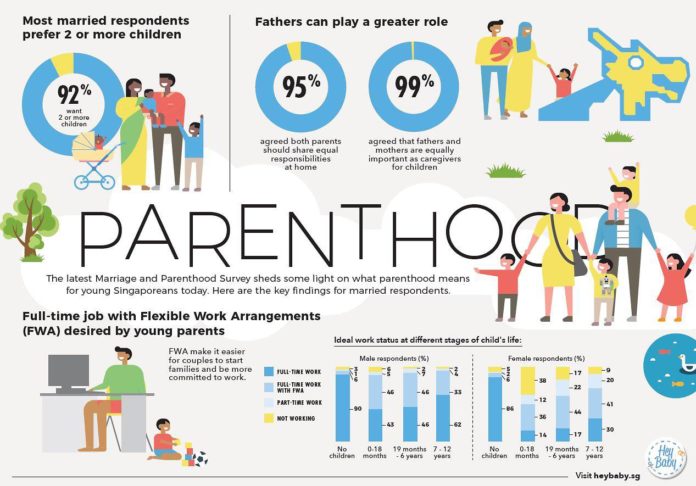SINGAPORE: In the coming months, the National Population and Talent Division will consult Singaporeans on their needs and concerns over marriage and parenthood, said Minister in the Prime Minister’s Office Josephine Teo on Thursday (Feb 28).
“I would like to invite all stakeholders to join us in co-creating and shaping policies,” said Mrs Teo in her Committee of Supply speech. The consultation will involve how the Government and community can better support people’s aspirations. “We will give more details about this consultation process soon.”
She noted parents’ concerns over financial costs, such as pre-school fees.
On this, Mrs Teo, who oversees population matters, said the Early Childhood Development Agency (ECDA) is reviewing the pre-school subsidy framework to make it more affordable for parents.
“The Ministry of Social and Family Development will provide an update on this during its Committee of Supply debate,” she said.
Currently, working mothers get a basic subsidy of S$600 and S$300 for infant care and childcare full-day programmes, respectively. Non-working mothers get S$150 for either.
Mrs Teo, who is also Manpower Minister, said that since 2014, ECDA has increased the number of full-day pre-school places nationwide by more than 50 per cent. She said there are 170,000 full-day preschool places today, a figure that will increase to about 200,000 by 2023.
She pointed out that parents now get more support for childraising costs.
After the first child is born, they can receive up to S$18,000 through the MediSave Grant for Newborns, Baby Bonus Cash Gift and the Child Development Account (CDA), a figure that is S$3,000 more than the maximum a couple would get in 2014.
“They will also receive a CDA First Step of S$3,000 deposited by the Government, without having to save into the CDA first, which helps to lighten their load at the start of their parenthood journey,” Mrs Teo said.
ENCOURAGING MARRIAGE AND PARENTHOOD TRENDS
Mrs Teo said there are “some reasons to be optimistic” when considering how Singapore is doing over the longer term when it comes to marriage and parenthood.

Findings on parenthood from the latest marriage and parenthood survey in 2016. (Infographic: Prime Minister’s Office)
She pointed to statistics which indicate that the average number of citizen births in the last five years is higher than previous five-year periods.
From 2014 to 2018, the average was 33,000 births annually. From 2009 to 2013, and from 2004 to 2008, this figure was lower at 31,400 and 32,000 births, respectively.

Findings on marriage from the latest marriage and parenthood survey in 2016. (Infographic: Prime Minister’s Office)
In addition, Mrs Teo highlighted that recent marriage numbers have remained high, with the average number of marriages in the past five years “significantly higher” than the past decade.
Still, with the trend of later marriages and births, Mrs Teo said the Government will review its assistance for couples who face difficulties conceiving, and who wish to undergo assisted reproduction technology treatments.
“For family to remain the bedrock of society, we must actively lean against the wind to make marriage and parenthood achievable, enjoyable and celebrated,” she added.
IMPROVED PARENTAL LEAVE
But to allow parents to care for their children better, Member of Parliament for Nee Soon GRC Louis Ng asked if it was possible to further increase the amount of parental leave.
“We will keep reviewing the scope to expand leave provisions, but we should be careful about mandating businesses to do more, as it would impact business viability and put jobs at risk,” Mrs Teo replied. “Given the recent enhancements, I hope members will agree to give companies some time to adjust before further moves.”

A table showing measures to support marriage and parenthood. (Infographic: Prime Minister’s Office)
Fathers can now get up to eight weeks of leave in his child’s first year, compared to four weeks five years ago. “The take-up of paternity leave has been encouraging, increasing from 37 per cent in 2014 to 53 per cent for recent cohorts,” Mrs Teo added.
Furthermore, Mrs Teo said each parent with children below the age of seven has six days of paid childcare leave per year, and two days of annual paid childcare leave when their children are in primary school.
FLEXIBLE WORK ARRANGEMENTS
At the workplace, Mrs Teo said parents are likely to benefit from flexible work arrangements (FWA), after the launch of the Tripartite Standard on Flexible Work Arrangements and the Work-Life Grant.
The grant, launched in July, has received more than 340 applications in five months, Mrs Teo said.
READ: Scheme to encourage flexible work arrangements enhanced
READ: New voluntary standard to encourage flexible work arrangements
“More workplaces are now supportive of FWAs,” she added, noting that around 53 per cent of employers now offer at least one formal flexible work arrangement, up from 47 per cent in 2014.
“This is, in fact, a significant turning point I have been waiting for. The tide is shifting and I’m hopeful flexible work arrangements will become much more commonplace henceforth.”
CONDUCIVE WORKPLACE CULTURE
But beyond workplace flexibility, Mrs Teo said there are deeper issues of workplace culture.
“Some Singaporeans indeed work very long hours, leaving little time for dating or family life,” she said. “Having fewer hours to rest and recharge not only affects employees’ health and well-being, but also the time that they have with their loved ones.”
READ: Commentary: Despite flexible work arrangements, work stress has worsened
With that, Mrs Teo said there is value for organisations to adopt new ways of working, but still achieve good business outcomes while giving staff enough down time to recharge.
For example, she pointed to M.Tech, a cybersecurity company which uses IT tools to enable staff to work remotely and still be effective. One employee was able to telecommute when her children were down with chickenpox.
READ: The Big Read: Breaking Singapore’s workaholic culture
“M.Tech was initially concerned about the investment needed to enable mobile working, but later found the benefits well worth it,” Mrs Teo stated.
“We hope many more employers will make the effort to promote more sustainable work practices for the sake of their employees and their own business viability in the longer run.”
CHANGE IN MINDSET REQUIRED
Nevertheless, Mrs Teo acknowledged that “deeper changes in mindsets” are needed to reduce the stress associated with parenting.
“Ultimately, marriage and parenthood are personal decisions, shaped by the values that each person holds dear, but influenced in no small part by our families, employers and the wider society,” she said.





